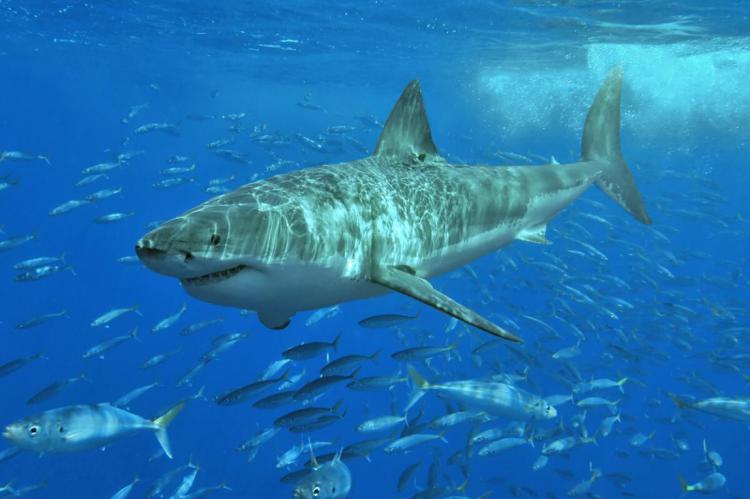Shark sightings off Massachusetts sparks tourism windfall
Great white shark numbers soaring due to successful conservation efforts. Sharks inspiring more curiosity than fear, resulting in a shark merchandise buying frenzy.
Sharks inspiring more curiosity than fear, resulting in a shark merchandise buying frenzy
Despite its man-eating reputation, the great white shark is emerging as a tourism windfall for on Cape Cod. Shark sightings have soared from fewer than two annually prior to 2004 to more than 20 in each of the last few years off Cape Cod, where the economy is heavily dependant on the summer tourism season. Despite notices urging boaters and swimmers to use caution, reaction has been in stark contrast to the panic depicted in "Jaws," the 1975 film shot mainly on the Massachusetts island of Martha's Vineyard.
Unlike the classic thriller, increasing shark numbers are inspiring more curiosity than fear, resulting in a shark-related merchandise buying frenzy. Shark T-shirts are everywhere, "Jaws" has been playing in local movie theatres and boats are ferrying tourists out to see the huge seal population that lures the sharks.
"White sharks are this iconic species in society and it draws amazing amounts of attention," said Gregory Skomal, a senior marine fisheries biologist who leads the Massachusetts Shark Research Program. "I have not been approached by anyone who has said to me 'let's go kill these sharks.'"
Feeding on seals, not humans
According to Skomal, sharks have been coming closer to shore to feed on seals, which have been coming ashore in greater numbers due to successful conservation efforts.
A study released by the U.S. National Oceanic and Atmospheric Administration found great white shark numbers are surging off the Eastern U.S. and Canada after decades of decline. Conservation efforts and greater availability of prey such as seals are credited with the reversal. Confrontations with people are rare, with only 106 unprovoked white shark attacks — 13 of them fatal — in U.S. waters since 1916, according to data provided by the University of Florida.
Collaboratively engage value-added potentialities rather than quality innovation.


